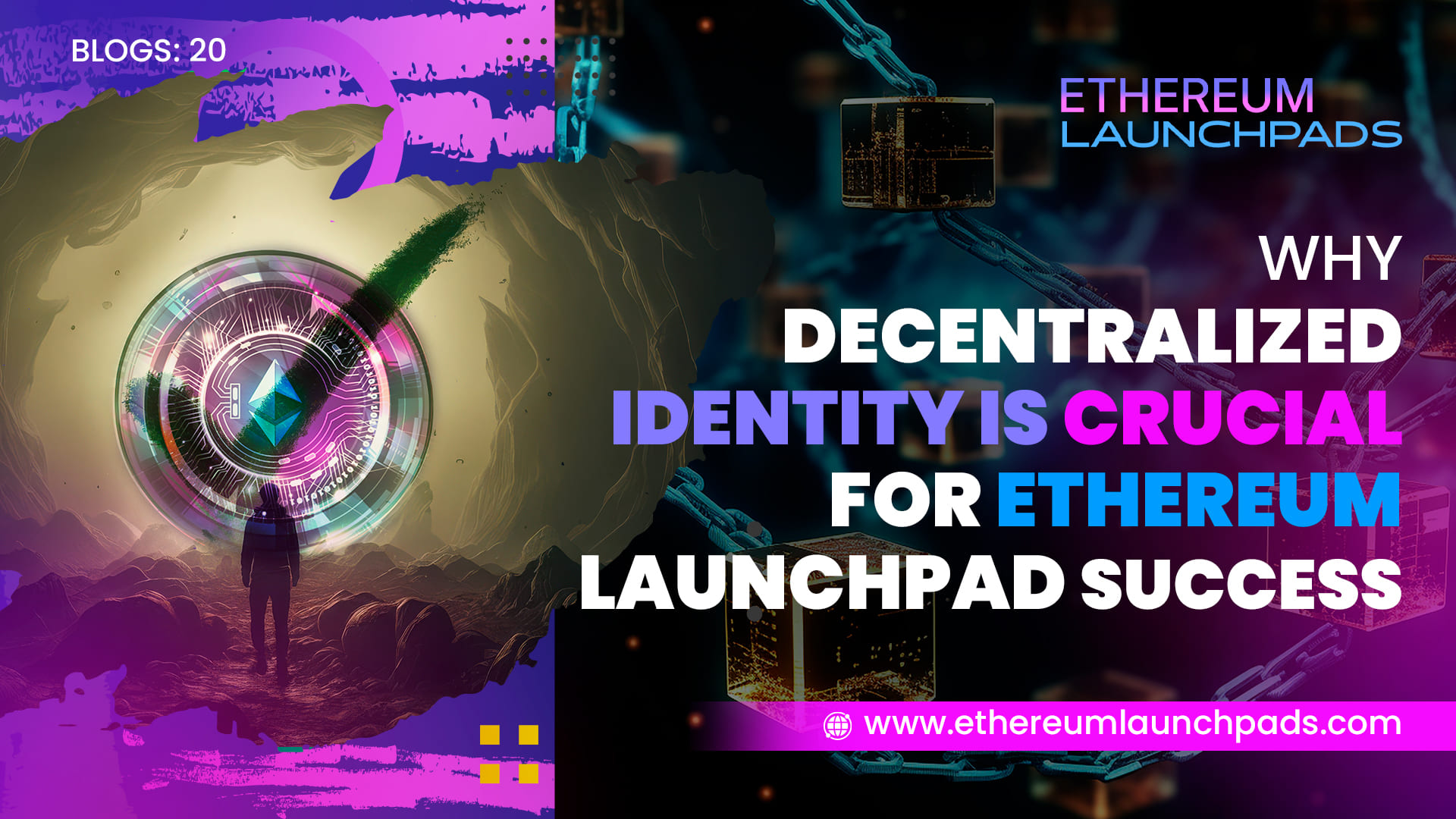December 25, 2024
Why Decentralized Identity is Crucial for Ethereum Launchpad Success
Decentralized identity has emerged as a pivotal element for ensuring the success of Ethereum launchpads. By leveraging blockchain technology, decentralized identity systems provide a secure, transparent, and privacy-preserving solution to identity verification, fostering trust among project owners and investors. This innovation not only enhances the credibility of launchpad projects but also aligns with the decentralized ethos of blockchain technology.
What Is Decentralized Identity?
Decentralized identity uses blockchain to create a self-sovereign identity system. Users retain control over their personal data, sharing only the necessary information for specific transactions. Unlike traditional identity systems, decentralized identity eliminates the need for centralized authorities, reducing risks associated with data breaches and unauthorized access.
Benefits of Decentralized Identity for Ethereum Launchpads
- Enhanced Security:
Decentralized identity minimizes the risk of data breaches by storing user credentials securely on the blockchain. - Privacy Preservation:
Users share only essential information, ensuring their privacy is respected while meeting verification requirements. - Global Accessibility:
Decentralized identity systems operate on a global scale, enabling users from any location to participate in Ethereum launchpad projects. - Trust and Transparency:
Blockchain’s immutable ledger ensures that identity verification processes are transparent and tamper-proof.
Why Ethereum Launchpads Need Decentralized Identity
- Strengthening Investor Confidence:
Decentralized identity provides investors with assurance that projects are legitimate, reducing risks of fraud and rug pulls. - Facilitating Compliance:
Many jurisdictions require identity verification for fundraising activities. Decentralized identity allows Ethereum launchpads to comply with regulations without compromising user privacy. - Streamlining Processes:
By automating identity verification, decentralized identity systems simplify the onboarding process for both investors and project owners. - Supporting Decentralized Governance:
Launchpads often rely on community governance. Decentralized identity ensures that voting processes are fair and secure.
Key Use Cases of Decentralized Identity on Ethereum Launchpads
- KYC Verification:
Ensures project owners and investors meet legal requirements without storing sensitive data on centralized servers. - Token Whitelisting:
Decentralized identity can verify eligibility for presales and token launches, creating a more equitable allocation process. - DAO Membership Validation:
Validates identities for participation in decentralized autonomous organizations associated with launchpad projects. - Cross-Chain Integration:
Facilitates seamless identity verification across multiple blockchains, enabling cross-chain project collaborations.
Challenges in Implementing Decentralized Identity
- Adoption Hurdles:
Decentralized identity systems require widespread adoption among users and project owners to be effective. - Interoperability Issues:
Ensuring compatibility with existing Ethereum launchpads and other blockchain networks can be complex. - Education Gaps:
Users and project owners may need guidance to understand and adopt decentralized identity solutions.
The Future of Decentralized Identity in Ethereum Launchpads
- Integration with DeFi Protocols:
Decentralized identity will play a critical role in integrating launchpads with decentralized finance protocols, creating a unified ecosystem. - Enhanced Privacy Features:
Innovations like zero-knowledge proofs will enable more secure and private identity verification. - Wider Regulatory Acceptance:
As regulators recognize the benefits of decentralized identity, adoption across Ethereum launchpads will increase.
Conclusion
Decentralized identity is not just a tool but a necessity for Ethereum launchpads aiming for long-term success. By providing secure, transparent, and privacy-preserving solutions, decentralized identity enhances trust and fosters a seamless experience for both investors and project owners. As the blockchain ecosystem evolves, decentralized identity will become a cornerstone of Ethereum launchpad operations.






